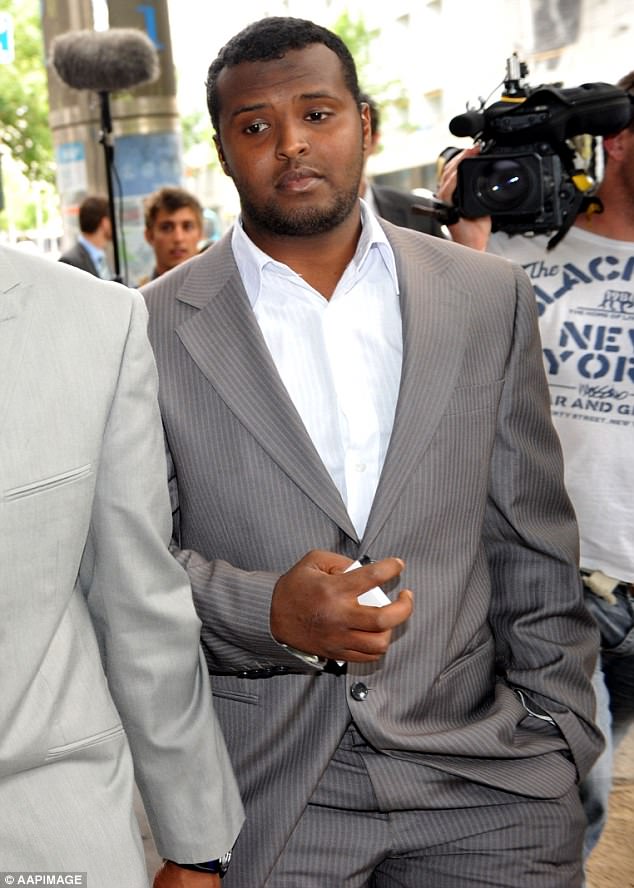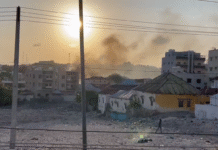Yacqub Khayre, the 29-year-old gunman who killed a man, took a woman hostage and sparked a siege in Melbourne yesterday, was well known to police and had an extensive criminal history.
Khayre, from Roxburgh Park in Melbourne’s north, was charged along with four other men with conspiring to do acts in preparation for or planning a terrorist act, in relation to a plot to attack Holsworthy Army base in New South Wales in 2009.
Khayre was alleged to have to travelled to Somalia in order to obtain a fatwa, or permission from a Muslim cleric, for the attack. However, he and another man were acquitted.
The three others, Wissam Mahmoud Fattal, Saney Edow Aweys and Nayev el Sayed, were convicted and sentenced to 18 years each in prison.
In remarks after an unsuccessful appeal by the men convicted of the Holsworthy plot, the Victorian Court of Appeal noted that the defence in the original trial argued successfully that Khayre “regarded Australia favourably”, and that he did not have any apparent motive to plan a terrorist attack.
Khayre spent more than a year on remand over the terrorism offences but was acquitted by a jury and released from custody two days before Christmas in 2010.
Who was Brighton siege gunman Yacqub Khayre?
Other videosMeet the youngest person to fly solo around AustraliaPapua New Guinea’s tribal wars escalate
VIDEO: Brighton siege: Police ‘treating it as a terrorism incident’ (ABC News)
Despite his apparent commitment to jihad, Khayre was a known drug user and committed a number of armed burglaries, including stabbing a stranger while stealing his phone and a small amount of cash.
Fifteen months after his release over the terror offences, in April 2012, while armed with a flick knife and drug-affected, Khayre was disturbed by the occupants of a house he was robbing.
He punched two of the occupants of the home and head-butted and punched a third. Khayre was eventually wrestled to the ground by the homeowners who held him until police arrived.
After being arrested by police he was assessed as being under the influence of alcohol or drugs. After being given time to sober up he provided police with a false name.
Khayre pleaded guilty to all charges and was sentenced to prison for five years and six months, with a non-parole period of three years.
In sentencing Khayre for the aggravated burglary, Judge Felicity Hampel questioned his commitment to reform himself.
“If you do not stop abusing drugs, you have limited prospects for rehabilitation,” Judge Hampel said.
“It would appear that each time you have been released from detention or custody, you have rapidly turned back to drug abuse, and nothing has been put to me to indicate that you demonstrate any will or commitment to address it.”
In a chilling portent of what was to follow, Judge Hampel also warned of the risk that Khayre’s offending would leave him increasingly isolated.
“There is a real risk you will become even more isolated than you are now, institutionalised, and at increasingly high risk of re-offending,” she said.
His prospects of rehabilitation were described as gloomy. While serving his jail sentence, Khayre was charged with an arson offence.
Chief Commissioner Graham Ashton said Khayre was complying with all of his parole obligations prior to yesterday’s shooting.
One line of inquiry is that Khayre was deliberately trying to lure counter-terror police to the apartment building in order to attack them.

Source :ABC











